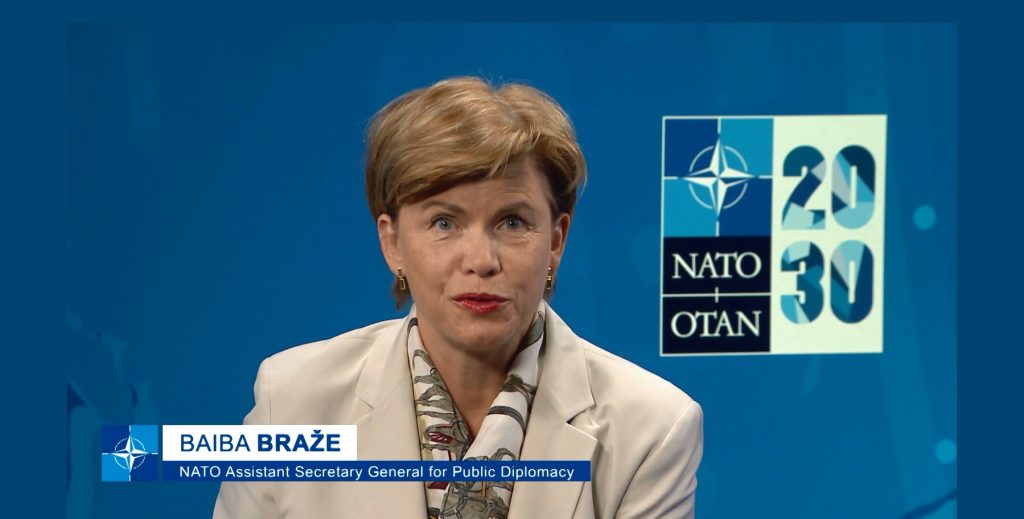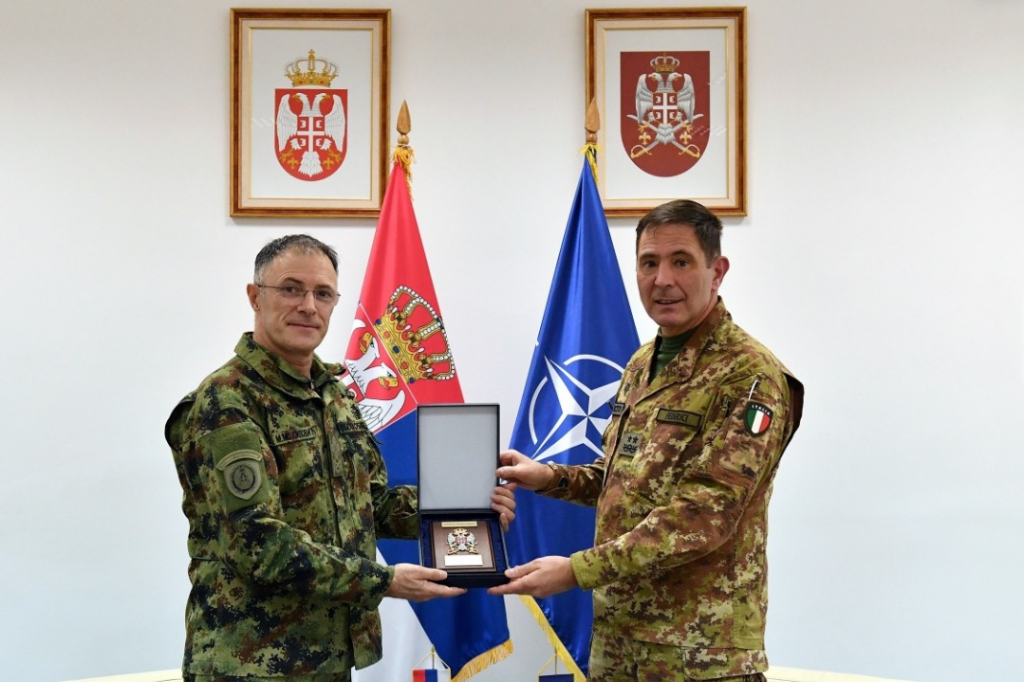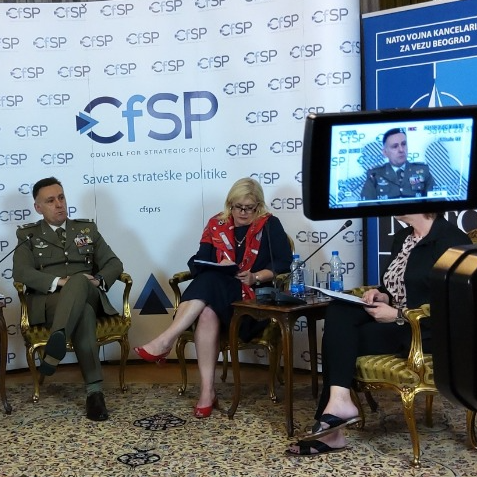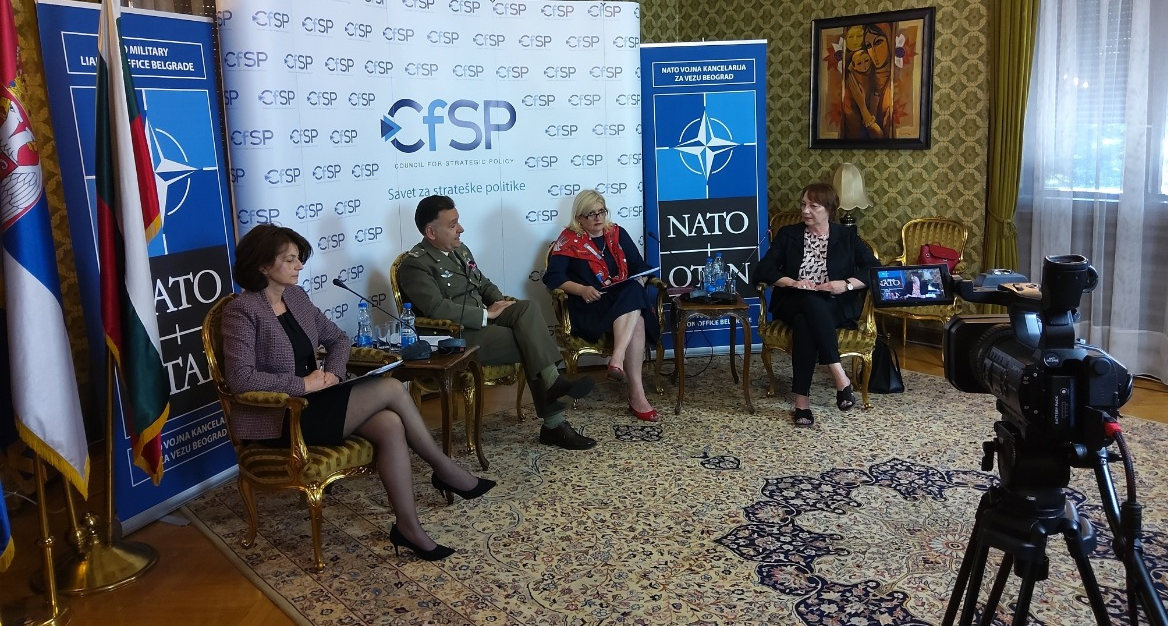On June 4, a think tank from Belgrade Council for Strategic Policy organized the Conference dedicated to the 15th anniversary of the partnership between Serbia and NATO entitled “Serbia and NATO – Partnership for the Future”, under the auspices of Embassy of the Republic of Bulgaria, which serves as a NATO Contact Point Embassy in Serbia and NATO Military Liaison Office Belgrade.
For this occasion, NATO Assistant Secretary General for Public Diplomacy Baiba Braže, addressed the audience and said:
“Serbia is key to the stability of the Western Balkans, a region of unique importance to NATO”.
In her address, she underlined that:
“In just a few months we will celebrate 15 years since Serbia joined the NATO Partnership for Peace program. These 15 years have been marked by many achievements. They have also demonstrated that partnership with NATO can bring real benefits to Serbia and its citizens, and the wider region.
NATO is committed to building a strong partnership with Serbia. Serbia is a valued, respected, and important partner for the Alliance. Serbia is important to NATO, and NATO is important to Serbia.
Partnership has yielded many significant results, in many different domains. From civil emergency and preparedness to training Serbian forces for peacekeeping operations. To security sector reform, to scientific cooperation.
Partnership has been the most important tool in setting a new, positive, long-term relationship between NATO and Serbia: It has been a facilitator to the establishment of a trusted political dialogue.
This dialogue between NATO and Serbia is now well-established up to the highest political levels. We saw that during the recent visit that President Vucic paid to NATO Headquarters, meeting Secretary General Stoltenberg, just a few weeks ago.

The Secretary General and President Vucic re-affirmed the desire and commitment to strengthen mutual cooperation between NATO and Serbia on the following principles:
– NATO’s commitment to security and stability in the Western Balkans through KFOR
– SG confirmed that KFOR will remain, and operate under the provisions of UNSCR 1244, guaranteeing a safe and secure environment and freedom of movement for all communities in Kosovo. As long as it may be necessary.
– That said, any long-lasting solution can only be political. NATO fully supports the EU-sponsored Dialogue on Normalization of Relations between Belgrade and Pristina.
I am convinced that, despite our mutually respected differences, NATO and Serbia should continue to work together to make the Western Balkans a safe, peaceful, stable and wealthy part of Europe. In this endeavor, Serbia bears the honor and the burden to play an essential and unique role”.
At the conference, KFOR Commander, Major General Franco Federici, talked about the role of KFOR in providing a safe and secure environment in Kosovo as well as their interactions with the respective Serbian military and civilian authorities.
“KFOR’s cooperation and mutual activities with the Serbian Armed Forces are excellent at all the levels of responsibility, from my level down to the Units on the ground.
The KFOR Joint Implementation Commission keeps daily contacts with its Serbian Armed Forces counterparts and the cooperation going on is at a very high level. Also, I periodically meet the Chiefs of Defence of the countries bordering with the KFOR Area of Responsibility in order to increase dialogue and mutual military understanding, and this happens regularly also with Serbia.
Soon we will celebrate the 500th meeting between the Serbian Armed Forces and the KFOR Joint Implementation Commission and a symbolic ceremony will be held in mid-June in NIS in order to mark the event.”

KFOR Commander underlined that NATO remains committed to the security and stability of Kosovo:
“We contributed to the progressive normalization of the security situation in the region and KFOR has been helping the stabilization and reconstruction of Kosovo to become a safer place.
NATO is firmly committed to stability in the Western Balkans through the KFOR peacekeeping force in Kosovo with a total strength of about 3.600 soldiers provided by 27 Nations, both NATO members, 19 of them and partners 8 of them.
Coming to the end of my brief presentation, I would like to point out that NATO continues to be strongly committed to Kosovo’s security, contributing to maintaining a safe and secure environment and freedom of movement for all communities, in line with the United Nations mandate.”
At the panel discussing the 15th anniversary of the partnership between Serbia and NATO, Chief of the Military Liaison Office in Belgrade Brigadier General Tommaso Vitale stated that NATO and Serbia have developed their close partnership steadily by working together on many projects, on a basis of mutually beneficial cooperation. He also reiterated NATO’s respect for Serbia’s stated policy of military neutrality, as well as the fact that it is on Serbia as a partner to choose what kind of cooperation it wants with the Alliance.

“I think one of the biggest challenges for NATO in Serbia is a field of public diplomacy, since the overall public does not see how much we work together. The things we have done in building capability and interoperability of the Serbian Army, security-related advanced technology and science, counter-terrorism, cyber defense, disaster response capabilities development and other fields, are in our opinion very beneficial as part of our cooperation”, underlined General Vitale.
General Vitale especially addressed the importance of NATO engagement when it comes to promoting cooperation with Serbia.
“We are countering false narratives with facts, with our values, and with concrete actions, which demonstrate NATO’s readiness and solidarity. We will continue to do our best to explain what NATO is, its principles, its democratic values and of our partnership with Serbia”, said Chief of the NATO Military Liaison Office in Belgrade.

